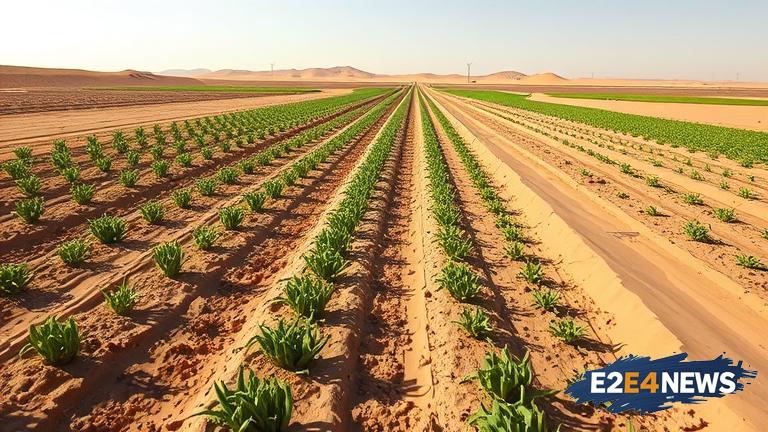Israel has long been a pioneer in agricultural innovation, and its latest endeavors in desert farming are no exception. The country’s agricultural sector has been working tirelessly to develop and implement new techniques to increase crop yields and promote sustainable agriculture in the desert regions. One of the primary methods being used is precision agriculture, which involves the use of advanced technology such as drones, satellites, and sensors to monitor and control crop growth. This approach allows farmers to optimize water and fertilizer usage, reducing waste and minimizing environmental impact. Additionally, Israeli farmers are utilizing advanced irrigation systems, such as drip irrigation, to conserve water and reduce evaporation. These innovative methods have already shown significant results, with some farms reporting increases in crop yields of up to 30%. The Israeli government has also launched initiatives to support desert farming, including the establishment of a new agricultural research center in the Negev desert. The center will focus on developing new technologies and techniques for desert farming, as well as providing training and support for farmers. Furthermore, the government has implemented policies to encourage investment in desert farming, such as tax breaks and subsidies for farmers who adopt sustainable practices. As a result, Israel’s desert farming sector is experiencing rapid growth, with new farms and agricultural projects springing up across the country. The use of renewable energy sources, such as solar and wind power, is also becoming increasingly popular in desert farming, reducing reliance on fossil fuels and minimizing carbon emissions. Israeli farmers are also experimenting with new crops and varieties that are better suited to the desert climate, such as drought-resistant crops and crops that can thrive in salty soil. The development of these new crops is being supported by Israeli universities and research institutions, which are working to develop new seed varieties and cultivation methods. Moreover, Israel’s desert farming sector is not only focused on domestic production, but also on exporting its expertise and technology to other countries. The country has already signed agreements with several nations to share its knowledge and experience in desert farming, and is working to establish itself as a global leader in this field. The potential for desert farming to address global food security challenges is significant, and Israel’s innovative approaches are being closely watched by countries around the world. As the global population continues to grow, the need for sustainable and efficient agricultural practices will only continue to increase, making Israel’s desert farming sector an important player in the global food system. In conclusion, Israel’s innovative desert farming techniques are not only boosting agricultural production, but also promoting sustainable agriculture and reducing environmental impact. With its strong focus on research and development, Israel is well-positioned to remain a leader in this field for years to come. The country’s expertise in desert farming is also being shared with other nations, helping to address global food security challenges and promote sustainable agriculture practices worldwide. Overall, Israel’s desert farming sector is a shining example of the country’s innovative spirit and commitment to sustainable development. The use of advanced technology, renewable energy sources, and innovative irrigation systems is making desert farming a viable and sustainable option, and Israel’s expertise in this field is being recognized globally. As the world continues to grapple with the challenges of food security and sustainable agriculture, Israel’s desert farming sector is an important model for other countries to follow.
